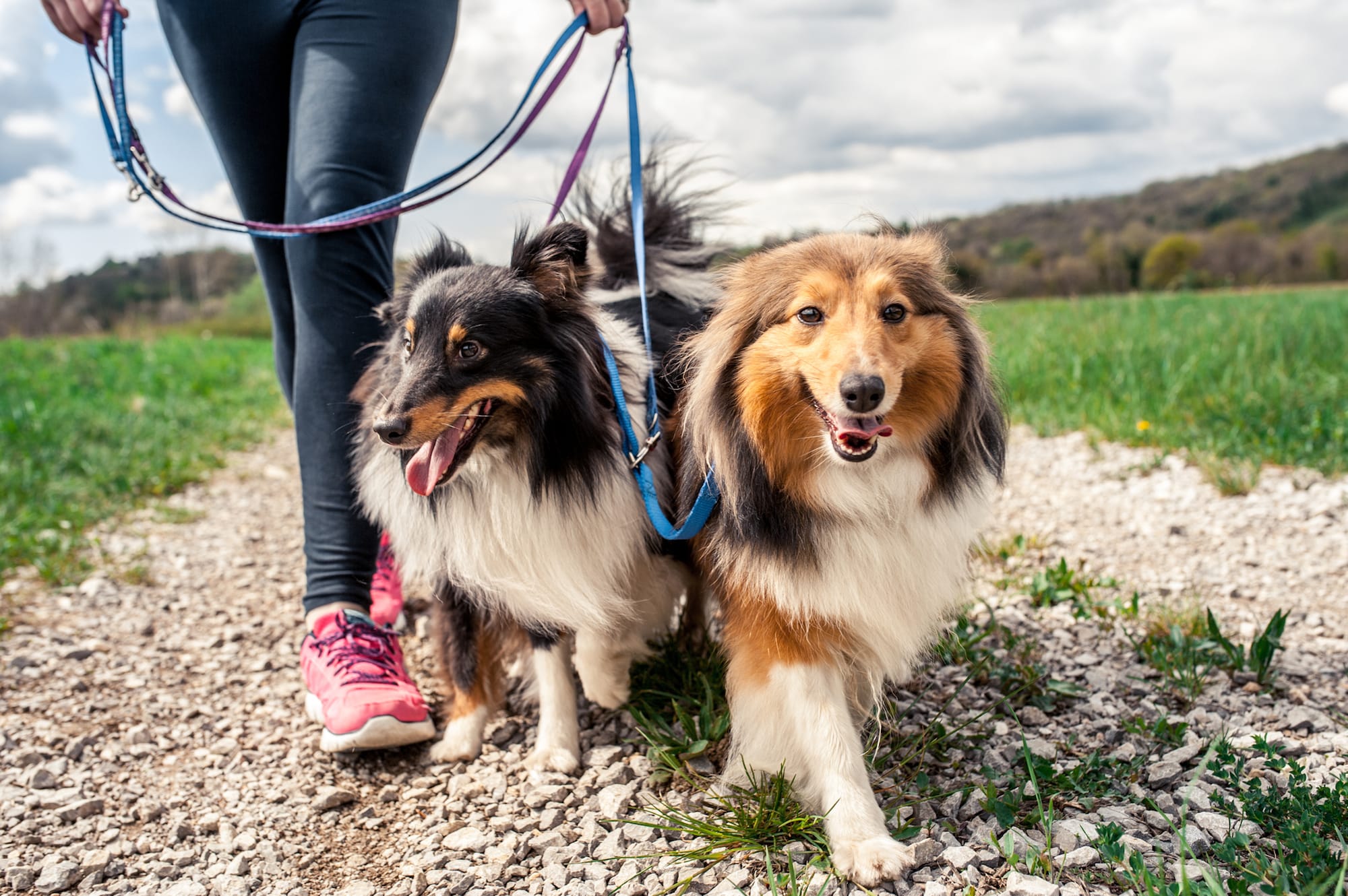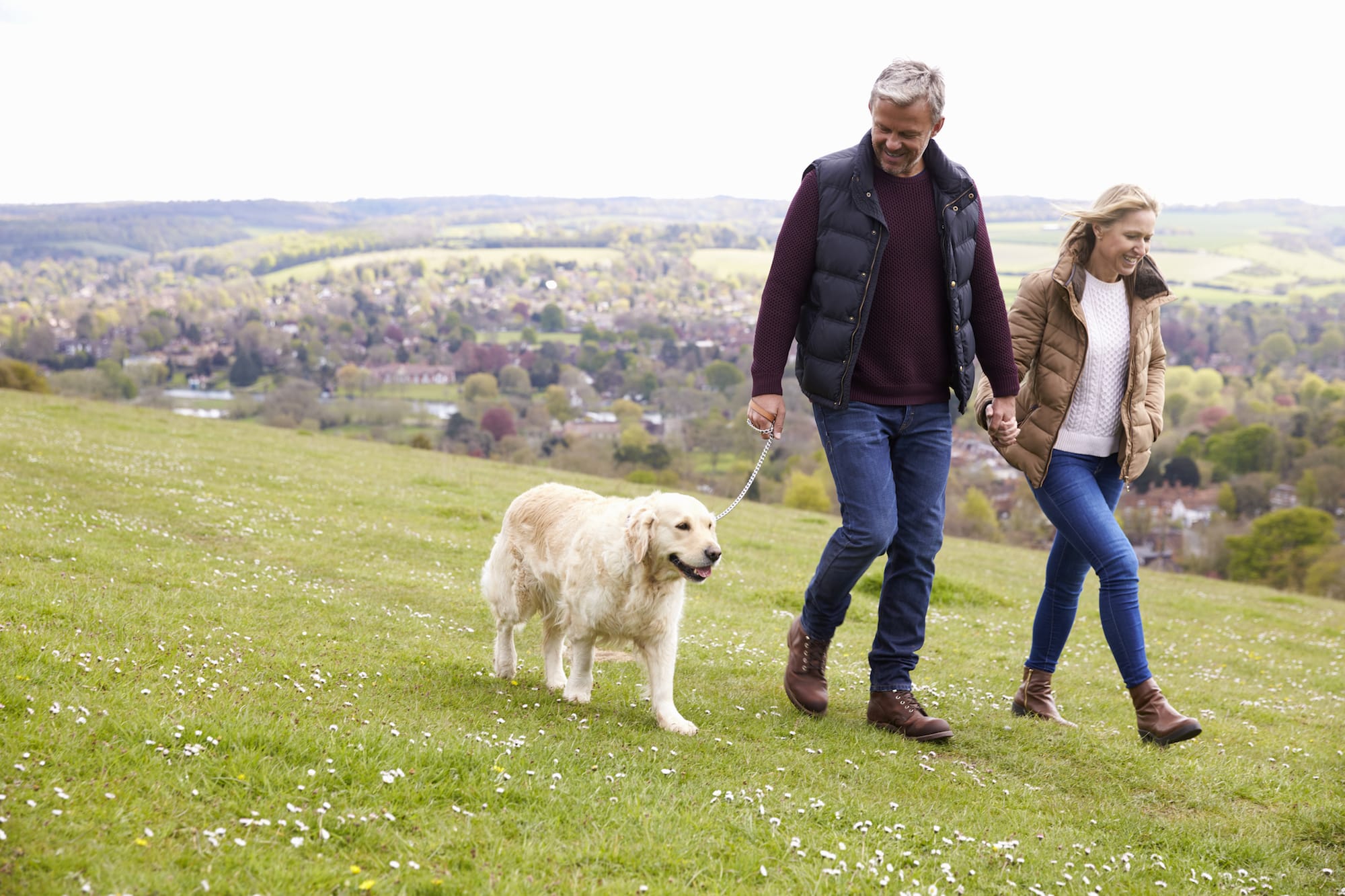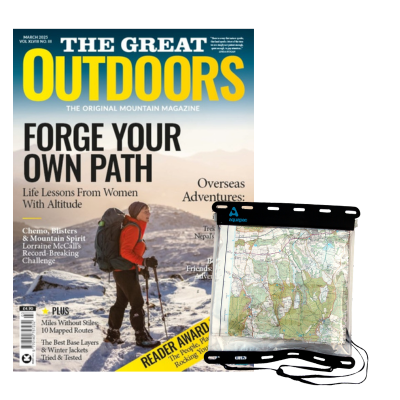Many of our readers get out into the countryside with their dogs. In this piece, Pedigree examines the nutrients your dog needs to perform on the hill.
Whether you’re exploring vast valleys and wild woodlands in the countryside or a bracing seaside walk along picturesque coastal paths, your dog is the ideal walking companion.
With a variety of dog-friendly walks across the UK, you and your four-legged friend can explore some fantastic landscapes.
Before you set off, though, you need to ensure that your dog is fuelled with all the right nutrients.
Pedigree reviews the four cornerstones of an active dog diet.

A balanced diet for your dog
Effortless enthusiasm is every dog’s birthright – and a great diet will give your dog the energy he or she needs to support a healthy lifestyle.
Dogs gain the widest range of benefits through a diet of dry food, wet food, treats and dental care.
Pedigree recommends that your dog’s main meals consist of 50 per cent dry food and 50 per cent wet food, which will give your dog different health benefits, tastes and textures.
Additionally, 10 per cent of a dog’s diet can consist of table snacks or doggy treats by Pedigree – to help satisfy their hunger throughout an active day.
Your dog’s diet needs to provide all of the essential nutrients in the right amounts, but what types of food should you be looking out for? Here are the four cornerstones of great doggy nutrition.
1. Proteins
A third of a dog’s protein intake is used to keep his or her skin and coat in peak condition, and half of your dog’s body mass is muscle built from protein in the food.
Protein is an essential nutrient used by the body for growth and maintenance. So whether you have a Doberman or a Chihuahua, protein is key for maintaining muscle and glowing looks.
Protein’s a great source of energy. It’s used not only for building new muscle tissue, but also for repairing damaged tissues in the body.
2. Fats
Fat is another important source of energy in a dog’s diet and it makes food highly palatable. Per gram, fat has about twice as much energy as protein and carbohydrates and is a source of essential fatty acids.
Fats also help boost your dog’s brainpower and are necessary for the normal development and function of body cells, muscles, nerves, and body tissues.

3. Carbohydrates
Although not an essential nutrient for dogs, carbohydrate and fibre are useful in their diet – they are a source of energy and they can help maintain blood sugar levels.
Fibre is a type of carbohydrate that can be useful for digestive health and increasing dietary bulk, which helps to optimise the time it takes food to pass through the dog’s digestive system for optimum absorption of nutrients from the food.
4. Vitamins and minerals
Finally, vitamins and minerals are another important component that ensures a complete and balanced diet for your dog.
Vitamins and minerals such as calcium, iron, and magnesium are essential nutrients in every dog’s diet.
Omega 3 helps keep your dog fit for life, while vitamins help maintain his or her natural defences and minerals including calcium help give your dog strong bones.
In addition to a healthy diet that includes all four cornerstones of nutrition, make sure your four-legged friend always has a fresh supply of water. You’ll rarely be far from water in the British hills; pack a water bowl and extra water if necessary.
With a complete diet that includes all the nutrients your dog requires, you and your four-legged friend will be ready to embark on a new outdoor adventure.
If you have any concerns about your dog’s diet, visit Pedigree’s dog nutrition page and consult with your local vet.
This is a sponsored post from Pedigree.
Don’t miss our skills guide to walking with your dog in the August 2017 issue of The Great Outdoors, in shops now. We take you through responsible access, walking near livestock, doggy cuisine, staying safe, essential gear, and useful tips for enjoying your walks together.









